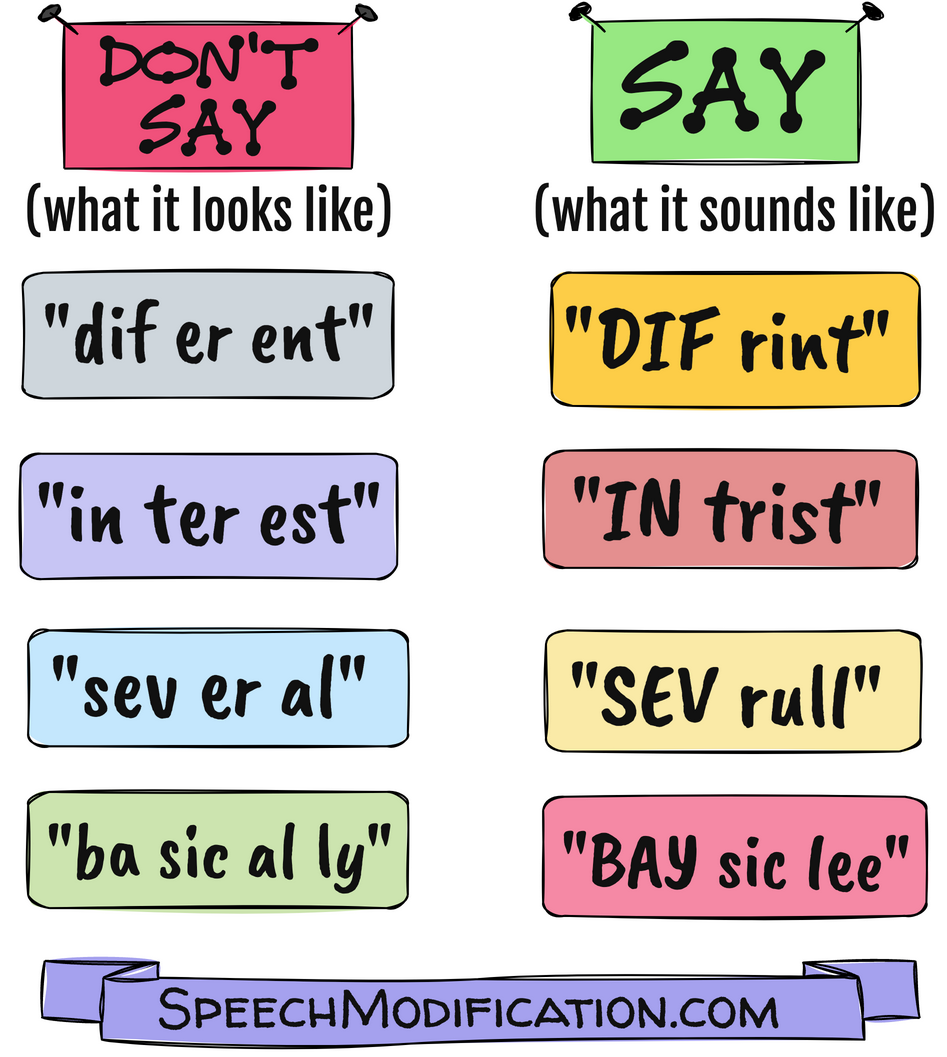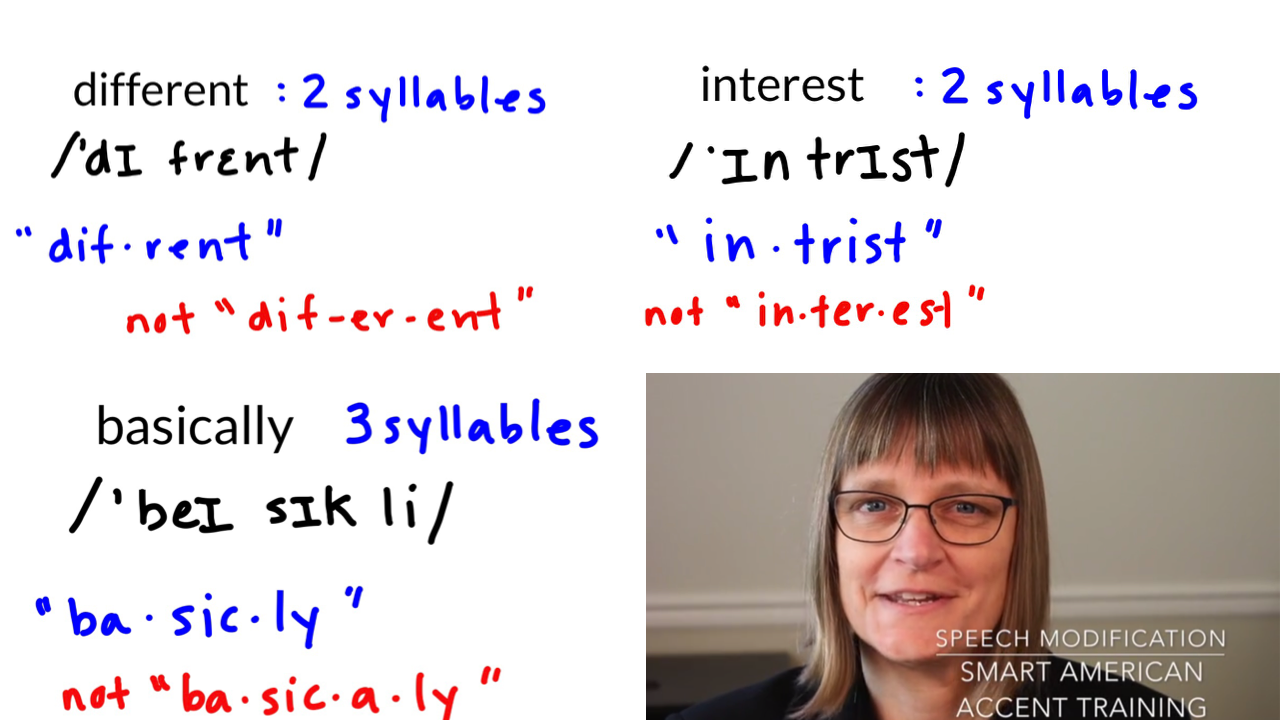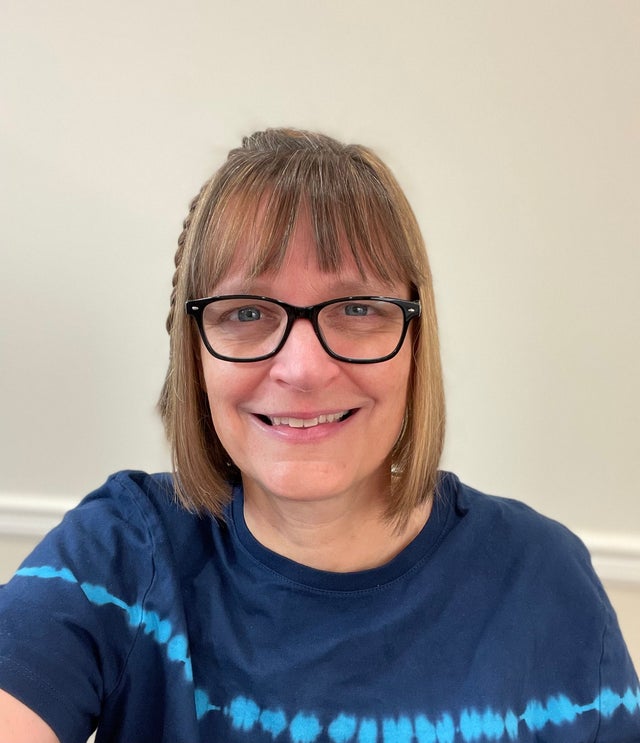|
The word the is the most frequently used word in English. Many non-native speakers mispronounce it. Use the videos below to help you learn to pronounce the correctly.
Need more help for the sounds in the word the? The video below goes into detail on the American Th and how to correct it in the most frequently used word in English.
Like these videos? Get even more help in our online courses. Get your free trial today.
Subscribe to our YouTube channel and join us for free weekly classes: www.youtube.com/speechmodificationseattle?sub_confirmation=1
0 Comments
Many people mispronounce the word says. Even though we have vowel ay /eɪ/ in the word say, says has vowel ɛ. This is the vowel in our anchor phrase red tent. Says rhymes with fez and rez. Also make sure you use a /z/ sound on the end of the word. Say "sez" /sɛz/, not "s-ay-s" /ses/. For more help with vowel /ɛ/, go to our practice for vowel /ɛ/. https://www.speechmodification.com/online-practice-free-trial/how-to-pronounce-vowel-eh For more help with final /z/ sounds, check out our practice for final /z/. https://www.speechmodification.com/online-practice-free-trial/smart-video-course-final-z For more everyday mistakes, see our YouTube playlist and our Quick Fix Practice. One of the error patterns which is common for non-native speakers of English is to say an extra syllable in certain words. This usually occurs because the spelled word looks like it should have additional sounds/syllables, or the root word has a different syllable pattern. Here are a few common words with this error pattern: different This word has 2 syllables: dif - rent. Avoid saying 3 syllables, dif-er-ent. difference This word has 2 syllables: dif -rence. Avoid saying 3 syllables, dif-er-ence. vegetable This word has 3 syllables: veg - ta - ble. Avoid saying e syllables, veg-e-ta-ble. several This word has 2 syllables: se - vral. Avoid saying 3 syllables, se-ver-al. interest This word has 2 syllables: in - trest. Avoid saying 3 syllables, in-ter-est. interesting, interested These words can be pronounced with either 3 syllables or 4 syllables. In most cases, we use 3 syllables to make our speech more fluent, especially when the word is in a sentence. Using 3 syllables will typically make your speech sound more American, and using 4 syllables will make your speech sound more accented. 3 syllables (preferable): in - tres - ting, in - tres - ted 4 syllables: in - ter - est - ing, in - ter - es - ted groceries This word can be either 2 syllables: gros - ries or 3 syllables: gro - ser- ies. Like the above words, using 3 syllables will typically make your speech sound more American, and using 4 syllables will make your speech sound more accented. general This word can be either 2 syllables: gen - ral or 3 syllables: gen - er- al. Using 2 syllables is preferable to sound like a fluent American speaker. preferable This word can be either 3 syllables: pref - ra - ble or 4 syllables: pref - er- a - ble. Using the reduced version will help you sound like a fluent American speaker. Adverbs with -ally: basically, typically These words have 3 syllables. Ba - sic - ly; ty -pic - ly. Avoid using 4 syllables ba-sic-a-ly; ty-pic-a-ly. specifically This word has 4 syllables. spe - ci - fic - ly. Avoid using 5 syllables, spe-ci-fic-a-ly. automatically This word has 5 syllables. au - to - ma - tic - ly. Avoid using 6 syllables, au-to-ma-ti-ca-ly. actually, especially These words can be either 3 or 4 syllables. Using the reduced version is advised. 3 syllables: ac-tul-ly; es-pesh-ly 4 syllables: ac-tu-a-ly; es-pe-shu-ly For more help with words ending in -ly, see this post. You can use the recording below to practice saying these words with the correct number of syllables. Have trouble knowing what to say when you meet someone new? Here are some phrases you can use to introduce yourself. First, use a greeting (hi, hello, etc.). Next, use an introductory phrase, like "nice to meet you," "I don't think we've been introduced," or "I don't think we've met." Then say your name (usually just your first name). Optionally, you can ask the other person's name, or give a point of reference that shows how you are connected (mention someone that they know and how you know them, or give some information about yourself to orient them such as your job).
Examples Greetings: Hello, Hi, How are you? Introductory phrases: Nice to meet you. I don’t think we’ve been introduced. I don’t think we’ve met. Giving your name: My name is ____________________. (stress pattern: main stress, stressed syllable of last name, or, if first name only, of first name) Examples: My name is Michael L - a - n caster. Hi, I’m M - i - chael. Hi, I’m Susanna Rod r - i - guez. I’m Sus a - n - n - a. Nice to meet you, I’m A - n - dy. It’s a pleasure, Andy C - h - u - n - g. Asking: Tell me your name again? And you are? Connecting/Giving Information: I work with John. I’m Veronica’s sister/brother/husband. I work in the marketing department. I went to school with Jim. |
Categories
All
Archives
May 2024
Have Questions?
Get A Free Consultation We offer a free 30-minute phone consultation. Schedule yours now. |


 RSS Feed
RSS Feed

